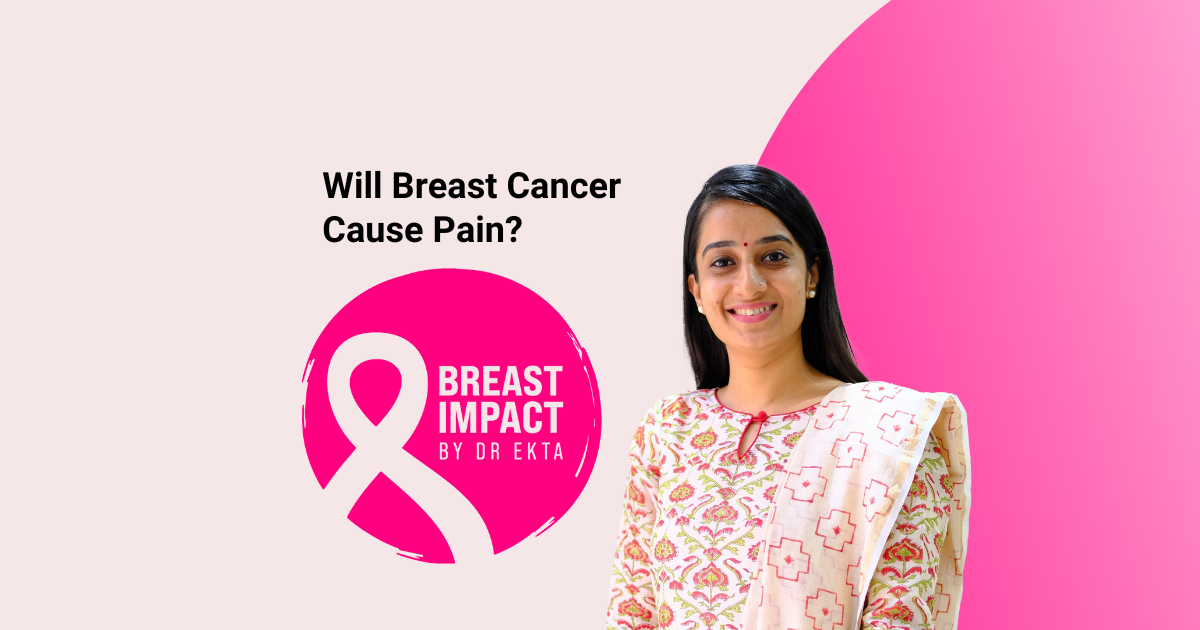One of the most common concerns my patients express is whether breast cancer causes pain. This is a natural question, driven by both fear and curiosity, as pain is often associated with serious health conditions. In this blog, I want to share insights into this topic and address the nuances of the connection between breast cancer and pain, answering the question: Will breast cancer cause pain?
The Nature of Breast Cancer Pain
Breast cancer, particularly in its early stages, does not usually cause pain. Many patients with breast cancer are initially asymptomatic, which is why regular screenings like mammograms are crucial for early detection. However, as the disease progresses, some individuals may experience discomfort or pain, depending on various factors such as tumor size, location, and how the cancer interacts with surrounding tissues.
It’s important to clarify that not all breast pain is related to cancer. In fact, most breast pain is due to benign causes, such as hormonal changes, cysts, or mastitis. Still, any persistent or unexplained pain should be evaluated by a healthcare professional to rule out any serious concerns.
Types of Pain Associated with Breast Cancer
When considering will breast cancer cause pain, it’s vital to understand that the experience of pain varies widely. Here are some scenarios where pain might occur:
- Tumor Growth and Pressure:
As a tumor grows, it may press against nearby nerves or tissues, causing localized pain. This type of discomfort might feel like a constant ache or a sharp sensation in the breast or surrounding areas. - Inflammatory Breast Cancer:
This rare but aggressive form of breast cancer can cause pain, redness, swelling, and warmth in the breast. The symptoms resemble an infection, but they persist despite antibiotic treatment. - Metastatic Breast Cancer:
If breast cancer spreads to other parts of the body, such as the bones or liver, it can cause pain in those areas. For example, metastasis to the bones often leads to significant discomfort in affected regions. - Treatment-Related Pain:
Treatments like surgery, radiation therapy, and chemotherapy can also cause pain. Post-surgical pain, radiation burns, or neuropathy from certain chemotherapy drugs are common side effects.
Differentiating Pain: When to Seek Help
As a medical professional, I always emphasize the importance of listening to your body. Breast pain can stem from a variety of causes, but certain red flags warrant immediate attention:
- Persistent pain localized to one area of the breast.
- A new lump or thickening that does not resolve with your menstrual cycle.
- Nipple discharge, especially if it’s bloody or occurs without stimulation.
- Visible changes in the breast, such as dimpling, puckering, or a change in size or shape.
These symptoms don’t necessarily mean you have breast cancer, but they should prompt a visit to your doctor for a thorough evaluation.
Understanding the Psychological Connection
Pain, whether or not it’s linked to breast cancer, can have a psychological impact. Anxiety, fear, and stress can amplify the perception of discomfort, creating a cycle that’s hard to break. This is why addressing emotional well-being is just as important as managing physical symptoms.
If you find yourself worrying excessively about the question will breast cancer cause pain, seeking support from a counselor, support group, or trusted healthcare provider can make a significant difference.
The Role of Early Detection
While breast cancer pain isn’t a reliable indicator of the disease, regular screenings remain the cornerstone of prevention and early intervention. Mammograms, breast self-exams, and professional evaluations help identify abnormalities before they escalate into more serious conditions.
Many patients ask me why they should prioritize screenings if they’re not experiencing pain. My response is simple: the earlier we detect breast cancer, the better the chances of successful treatment. Pain or no pain, early detection saves lives.
Steps to Minimize Pain During Treatment
If you’ve been diagnosed with breast cancer and are concerned about pain, there are ways to manage and minimize it effectively:
- Communicate Openly with Your Medical Team:
Don’t hesitate to share any discomfort you’re experiencing. Your doctors can tailor treatments to alleviate pain, such as prescribing medications, adjusting therapy schedules, or recommending physical therapy. - Adopt a Holistic Approach:
Techniques like yoga, meditation, acupuncture, and massage therapy can complement medical treatments and help reduce pain and stress. - Stay Informed:
Understanding what to expect during treatment can ease anxiety and help you prepare mentally and physically for any potential challenges. - Leverage Support Systems:
Family, friends, and support groups can provide emotional and practical assistance, ensuring you don’t face the journey alone.
The Importance of Awareness
The connection between breast cancer and pain is a nuanced one. While pain isn’t a definitive symptom of breast cancer, it can occur in certain scenarios. Raising awareness about the potential signs and symptoms of breast cancer, including pain, empowers individuals to seek help early and take charge of their health.
In my practice, I’ve seen the transformative power of education. Patients who understand their condition are more likely to follow through with screenings, treatments, and lifestyle changes. This is why I’m passionate about spreading accurate, accessible information.
Final Thoughts
Will breast cancer cause pain? The answer isn’t straightforward. While pain can be a symptom in some cases, it’s not a universal experience and shouldn’t be relied upon as the sole indicator of breast cancer. Whether you’re experiencing pain or not, proactive measures like regular screenings, self-exams, and open communication with your healthcare team are vital.
Breast cancer awareness is not just about knowing the facts, it’s about taking action. If you or someone you love is facing uncertainty about breast pain or any other symptoms, don’t hesitate to seek professional guidance. Together, we can navigate the complexities of this disease and strive for better outcomes.
Remember, knowledge is power, and early detection is the key to overcoming breast cancer. Stay informed, stay vigilant, and prioritize your health.

